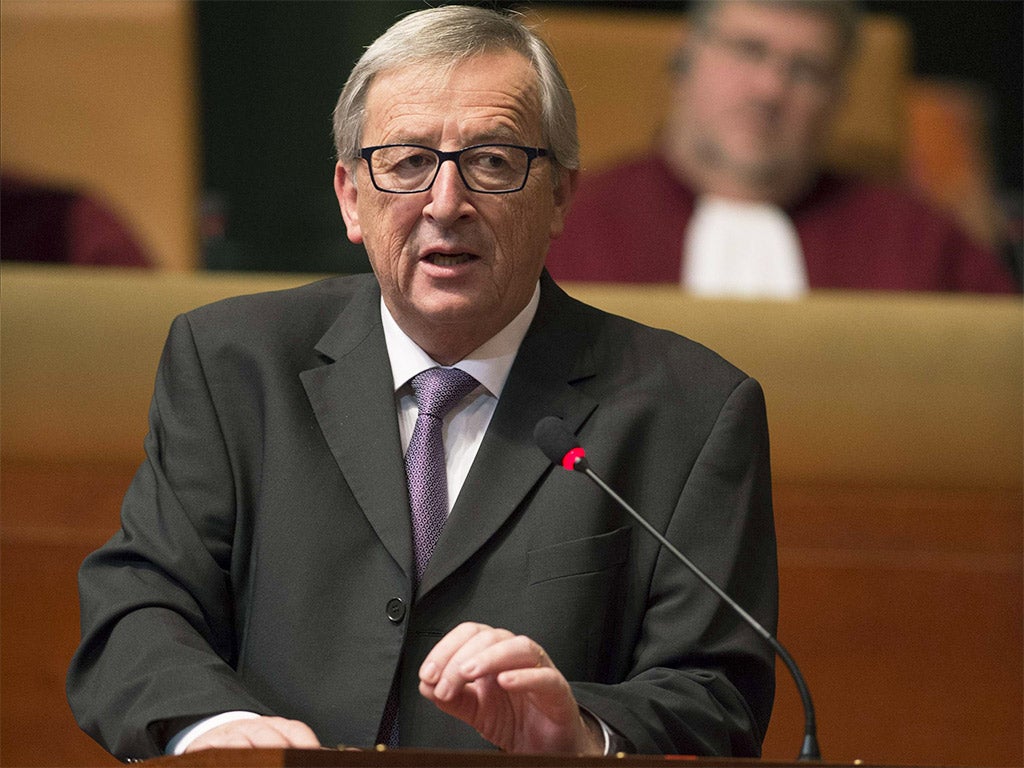Nobel winners urge European Commission not to cut funds for science
Experts angry as EC boss plans to slash the research and innovation budget by £2bn

Dozens of Nobel prize-winners have written to the President of the European Commission urging him to reverse his plan to slash EU spending on research and innovation by €2.7bn (£2bn).
Jean-Claude Juncker wants to transfer the €2.7bn into a new pot intended to boost EU infrastructure spending by €315bn as part wider proposals to kick-start the moribund eurozone economies.
But in a letter seen by the Bureau of Investigative Journalism, 27 Nobel laureates express their “dismay” at the plan and warn that Europe’s reputation in high-profile research fields would be severely damaged.
Among the budgets which will be cut include the EU’s Horizon 2020 pioneering research, space and innovation budget, with the biggest loser being the European Research Council which faces a €220m hit. “By cutting this funding the European Union will send a message that Europe is not the place to do high level science, and the ideas that we need to really flourish will instead go to other parts of the world,” the letter states.
“Horizon 2020 and the European Research Council are an indispensable long-term investment in Europe’s future. They are key tools for generating knowledge that drives our economic wellbeing and improvements in our health and the quality of our lives.
“Europe’s long-term sustainable economic future can only be built on continued research and innovation – a point well recognised by European industry. If we do not get smarter we will get poorer.”
Organised by Royal Society president and Nobel prize-winning geneticist, Sir Paul Nurse, the signatories include Sir Andre Geim, who was awarded the 2010 Nobel Prize for his ground-breaking work on graphene, and Professor Sir John Sulston, a founder director of the Wellcome Trust Sanger Centre, where part of the human genome was sequenced.
Professor Sir John Walker, a Nobel prize-winning chemist at Cambridge University, who is one of the signatories to the letter to the Commission, told the Bureau: “If the proposals were to be implemented, they would cause immense damage to the EU science effort and seriously undermine long-term economic recovery based on knowledge and invention. It is nothing less than a disastrous proposal.” Labour MEP Theresa Griffin, who sits on the European Parliament’s industry, research and energy committee, also expressed her “extreme concern”.
An internal European Commission memo leaked to the Bureau claims the cut to scientific research has “unanimous support” from officials of the 28 member states. The plan aims to build new power stations, roads and other major schemes across Europe.
But the Business Secretary Vince Cable suggested this might not be the case.
“It is essential that the Junker plan doesn’t proceed at the expense of investment in science and research,” he said. “I will be seeking assurances that UK research will not be adversely affected.”
Letter to Juncker: The signatories
Paul Nurse, Christiane Nüsslein-Volhard, Christopher Pissarides, Kostya Novoselov, Jules Hoffmann, François Englert, Venkatraman Ramakrishnan, John Sulston, Kurt Wüthrich, Tim Hunt, Claude Cohen-Tannoudji, John E Walker, James A Mirrlees, Paul Crutzen, Richard R Ernst, Robert Huber, Jean-Marie Lehn, Serge Haroche, Andre Geim, Gerhard Ertl, Jean Tirole, Ada Yonath, John O’Keefe, May-Britt Moser, Edvard Ingjald Moser, Klaus von Klitzing, John Gurdon, Aaron Ciechanover, Michael Atiyah, Timothy Gowers, Alain Connes, Simon Donaldson, Jean-Christophe Yoccoz, Cédric Villani, Maxim Kontsevich, Martin Hairer, Artur Avila, László Lovász, Endre Szemerédi, Wendelin Werner, Alain Aspect
This story was first reported by the Bureau of Investigative Journalism
Subscribe to Independent Premium to bookmark this article
Want to bookmark your favourite articles and stories to read or reference later? Start your Independent Premium subscription today.

Join our commenting forum
Join thought-provoking conversations, follow other Independent readers and see their replies